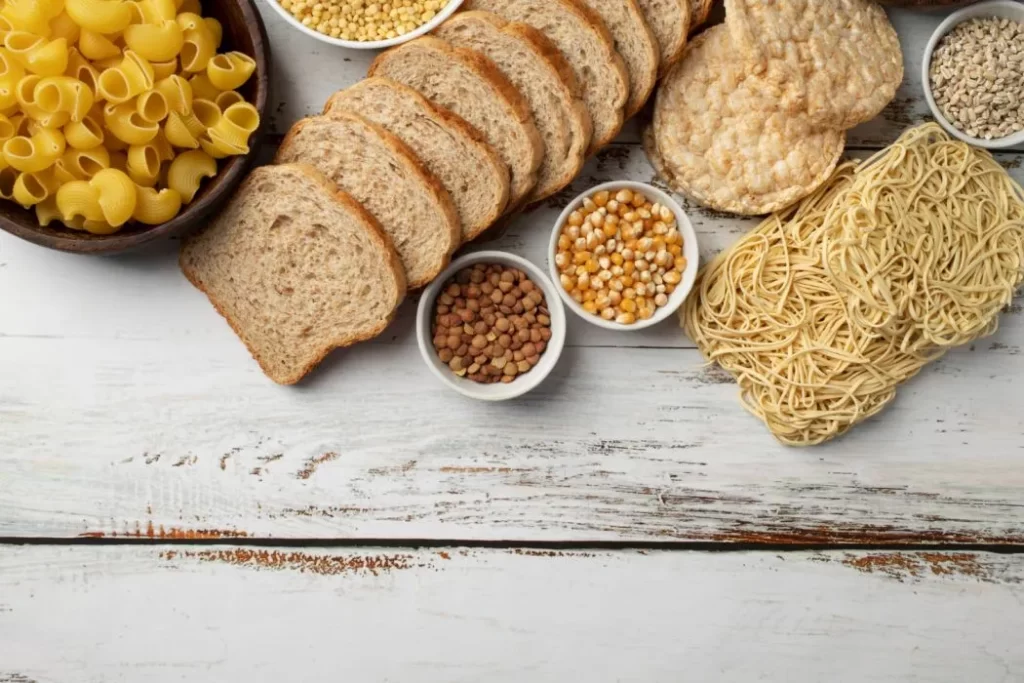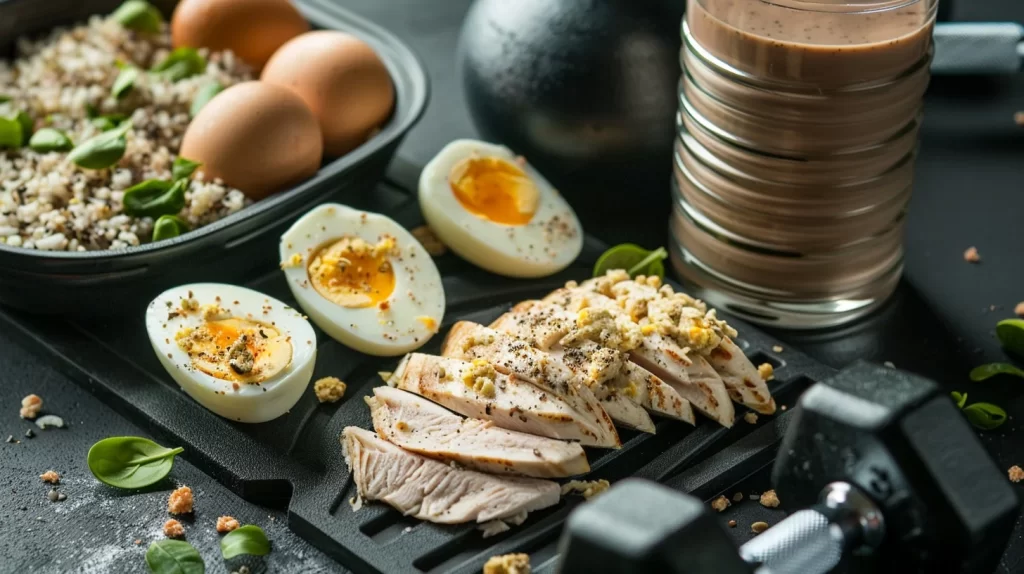If you’re preparing for a marathon or just looking to enhance your running performance, you may have heard about carb loading. Carb loading (short for carbohydrate loading) is a strategy runners use to maximize energy levels during long-distance runs. It involves increasing your intake of carbohydrates in the days leading up to your event. But how does carb loading work, and how can you use it to your advantage? Let’s dive into the science behind it and how to fuel up properly before your next big race!

What is Carb Loading?
Carb loading is a dietary technique used by athletes—especially runners and endurance exercisers—to increase glycogen stores in muscles. Glycogen is the primary energy source for endurance activities, like running a marathon. Normally, your body stores enough glycogen to last about 90 minutes of intense exercise, but when you’re pushing beyond that time, your muscles may run out of fuel, leading to fatigue or “hitting the wall.”
By strategically increasing your carbohydrate intake, you can boost your body’s glycogen reserves, helping you avoid running out of energy during long runs. Think of carb loading as topping off your fuel tank so you can keep going strong!
Why Runners Should Carb Load
For runners, especially those training for long-distance events like a marathon, carb loading can be a game-changer. It helps:
- Sustain energy: Carb loading provides more fuel, allowing you to maintain your pace for longer.
- Delay fatigue: With more glycogen stored, your muscles take longer to become depleted, so you can avoid that dreaded “bonk” or energy crash.
- Improve performance: When your energy levels are high, you’ll likely feel stronger and faster throughout the race.
That said, carb loading is not necessary for short runs. It’s mainly beneficial for races lasting longer than 90 minutes—like a half marathon, marathon, or any endurance race.
How to Carb Load: The Basics
Carb loading isn’t about stuffing yourself with pasta the night before your race (although, that does sound tempting!). It’s a more gradual process that should start 3-6 days before your event, giving your body enough time to properly store glycogen.
Here’s how to do it right:
- Increase your carbs: Gradually raise your carbohydrate intake to 70-80% of your total daily calories. Focus on healthy, complex carbs like whole grains, fruits, vegetables, and starchy foods. Try options like brown rice, sweet potatoes, quinoa, and oatmeal.
- For example, if you normally eat around 2,500 calories a day, aim for 1,750-2,000 calories from carbs.
- Decrease exercise intensity: As you up your carbs, taper off your training intensity. The goal is to save energy for race day while allowing your body to store glycogen.
- You don’t have to stop running altogether, but reduce the duration and intensity of your workouts. Instead of intense runs, opt for slow jogging or brisk walking.
- Stay hydrated: Carbohydrates require water for storage, so make sure you’re drinking enough fluids. Hydration is crucial for both storing glycogen and keeping your muscles functioning properly during the race.
- Avoid overeating: Carb loading isn’t an excuse to eat huge meals. Overeating can leave you feeling bloated and sluggish. Instead, spread your meals throughout the day and focus on smaller, carb-rich portions. Think balanced meals like a bowl of quinoa salad with lean chicken or a sweet potato with veggies and avocado.
- Watch the fiber: While complex carbs are great, too much fiber can lead to digestive issues during the race. Stick to low-fiber carb sources like white rice, pasta, or white bread closer to race day to avoid any unwanted pit stops mid-run.
The Day Before Your Race
The night before your marathon, have a carb-rich dinner, but don’t go overboard. You want to feel energized, not overly full. A simple meal of pasta with marinara sauce, grilled chicken, and steamed veggies can do the trick. Aim to finish eating at least 2-3 hours before bedtime to allow for proper digestion.
Pro Tip: Have a light breakfast on race day morning, too. A banana, oatmeal, or a slice of toast with peanut butter should give you the perfect balance of carbs and protein.
Foods to Include in Your Carb Loading Plan
To help you out, here’s a list of carb-rich foods perfect for carb loading:
- Whole grain pasta
- Brown or white rice
- Quinoa
- Sweet potatoes
- Oats
- Whole wheat bread or bagels
- Bananas and other fruits like apples, oranges, and berries
- Low-fat yogurt
- Low-fiber cereals
These foods not only provide the necessary carbs but also keep you feeling light and energized.
How Much Should You Eat?
For carb loading, aim for around 3-5 grams of carbohydrates per pound of body weight. For example, a 150-pound runner would need about 450-750 grams of carbs per day during the loading phase. Again, spread this throughout the day to avoid overloading your stomach.
Can Carb Loading Help with Shorter Runs?
While carb loading is mainly recommended for long-distance running, it can be beneficial if you’re running close to a half marathon or intense long-distance training runs. If you’re doing shorter runs or even 5Ks, a balanced diet without focusing heavily on carb loading should provide enough fuel.
Common Carb Loading Mistakes
Avoid these common mistakes when carb loading:
- Eating too much fiber: While whole grains are great, too much fiber can upset your stomach on race day. Stick to lower-fiber carbs closer to the race.
- Starting too late: Carb loading should start several days before your race, not the night before.
- Not drinking enough water: Stay hydrated to support glycogen storage.
- Eating too much fat or protein: These nutrients are harder to digest, so they might slow you down on race day.
Final Thoughts: Make Carb Loading Work for You
Carb loading can be a great way to maximize your energy for long-distance runs and marathon training. By gradually increasing your carb intake and tapering off exercise, you’ll set yourself up for race-day success. Just remember to eat balanced meals, stay hydrated, and don’t overdo it.
So, the next time you’re gearing up for a marathon or a long run, consider carb loading to fuel your body and reach your goals. If you’re new to marathon training or need extra guidance, consult with a running coach or visit your local running store for personalized tips and advice.
Get ready to hit the road feeling energized and prepared! 🏃♂️💪


